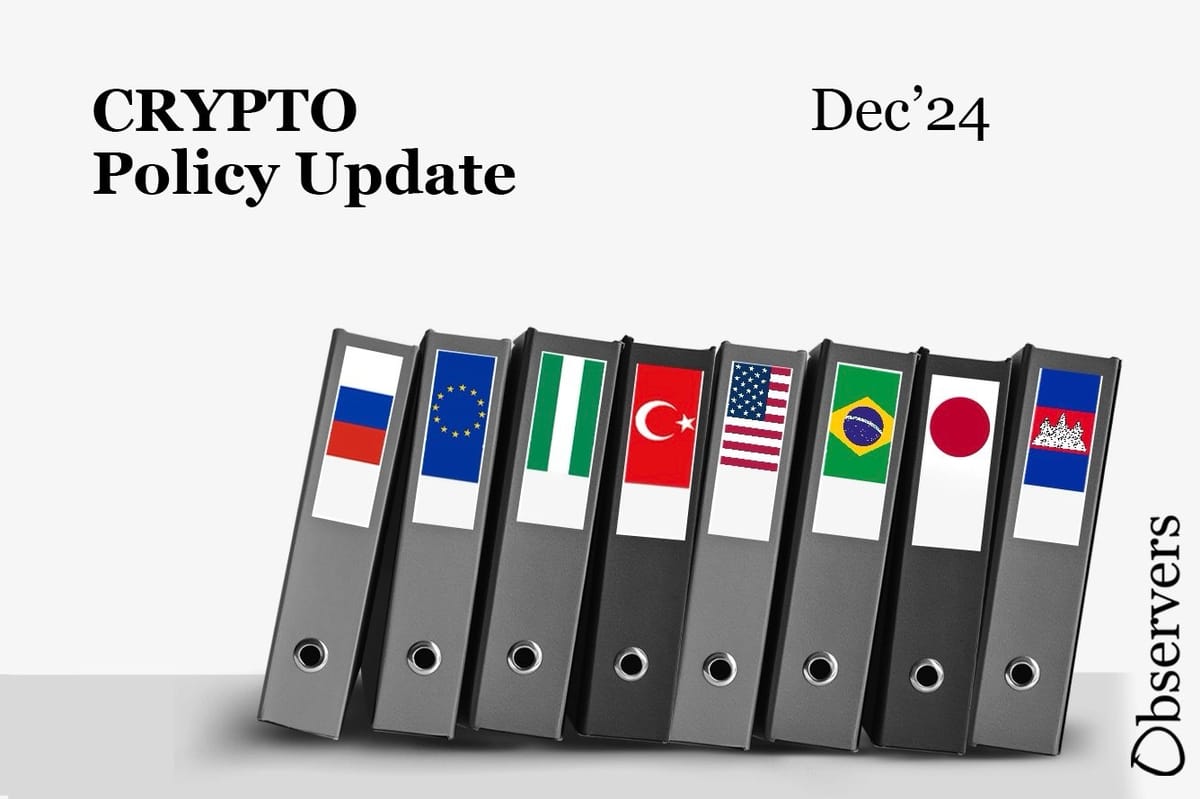Global Crypto Policy Update - 12/2024
December 2024 saw significant crypto policy developments worldwide, with the U.S. appointing a new SEC chair and approving Bitcoin ETFs, the EU implementing its MiCA legislation, and several countries introducing new rules on mining, transactions, and taxation.


